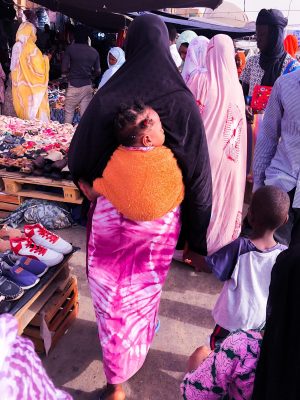
COVID-19 has captured the attention of the Sahel as a top priority for 2020. Across the region – made up of Mali, Mauritania, Burkina Faso, Chad, and Niger – the pandemic dominates government agendas, while the security situation continues to deteriorate outside of the regional capitals. The spread of COVID-19 has not yet impacted the Sahel to the same extent seen globally, but the geographic expansion of conflict and the number of violent attacks has risen steeply during the pandemic. Recent months have seen a proliferation of criminal jihadist groups capitalizing on the uncertainty of the COVID-19 crisis by spreading extremist and false narratives to attract members and solidify their ideological positions. Throughout the pandemic, it will remain crucial for business and government to work together to combat the current health, economic, and security crises taking shape across the Sahel.
While the countries of the G5 Sahel have invested substantial time on the security front, they have also increasingly realized that the inclusion of economic development in their efforts is crucial to finding a sustainable approach to the fight against violent extremism. Poverty reduction programming aimed at improving the living conditions of highly vulnerable groups and building viable local resilience have been identified by the G5 Sahel as strategic entry points to break the vicious cycle of instability. Given the institutional challenges of developing countries, private investment promotion has been recognized as critical to achieving sustainable poverty reduction. Beyond firsthand local wealth creation, businesses contribute to income generation by creating jobs, producing goods and services, and generating tax revenue that can be spent by the government on critical social services such as healthcare and education. Private sector development is, therefore, a key strategic aspect of enabling economic inclusion and shared prosperity.
In 2018, the Center for International Private Enterprise (CIPE), in collaboration with the Permanent Secretariat of the G5 Sahel, engaged national policymakers and think tanks in discussions on the importance of economic development in combatting insecurity. These efforts led to the creation of a regional coalition of associations representing the private sector and a network of think tanks capable of producing and sharing locally driven research. The private sector coalition met in Nouakchott, Mauritania in December 2019, which led to the Nouakchott Declaration and the formal engagement in the coalition of both the G5 Sahel Union of Chambers of Commerce and Union of National Employer Associations.
The COVID-19 pandemic hit the Sahel at a time when such critical initiatives were just emerging; while the regional attention has now shifted to the health crisis, COVID-19 does not rid us of the many other regional challenges faced by the Sahel. Quite the contrary, it weakens the stability and development efforts of a group of already fragile States. Economies are on the brink of collapse with critical sectors almost entirely decimated and many businesses in serious financial trouble across industries. COVID-19 is an aggravating factor that calls for not only maintaining but reinforcing economic resilience efforts in the Sahel.
The voice of the private sector is critical in this moment of multiple crises; it ensures the relevance and implementation of COVID-19 emergency plans, placing reform policies to restart economies at the forefront of government agendas. Regional collaboration within the private sector will also mobilize business communities around collective action for resilience and decentralized development. Building on these realities in its upcoming project in the Sahel, CIPE will work alongside the coalition and local think tanks to support development-focused public-private partnerships. The project is grounded in local responsibility and accountability of regional stakeholders to implement sustainable development measures. With COVID-19 adding a third crisis to the Sahel, it will remain vital that the voice of business is elevated within the policymaking process. While COVID-19 represents a new and distinct crisis in the Sahel, its impact on the region is inseparable from the existing economic and security crises. Abandoning or deprioritizing either the security or economic crises in the face of the pandemic would be a mistake with drastic effects in the Sahel and dire consequences at a global level.
Haroune Sidatt is the Sahel Senior Private Sector Development Specialist at CIPE.
Published Date: June 24, 2020
